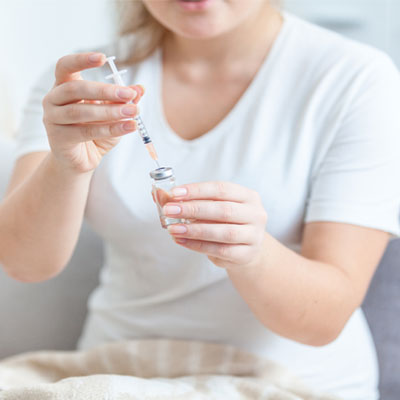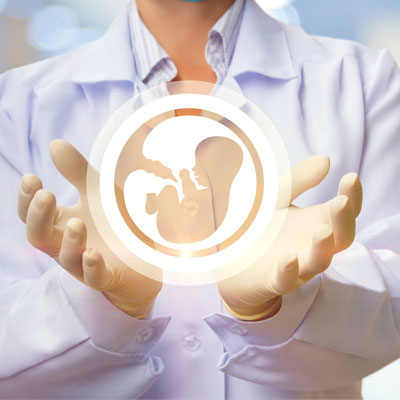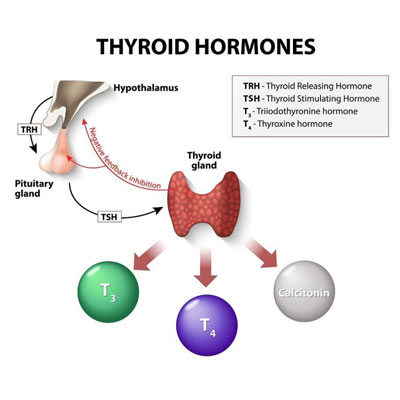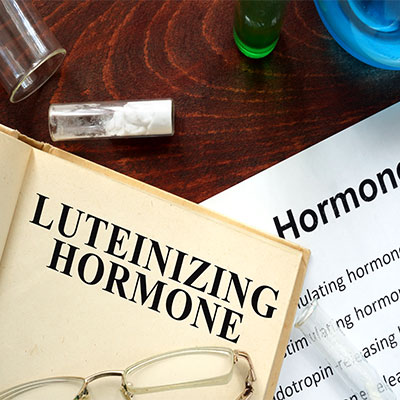Contents

What is HCG and why all the buzz about its usefulness?
Human chorionic gonadotropin has the following functions:
- Promoting production of progesterone by corpus luteal cells (progesterone is the precursor to testosterone)
- Stimulation of testosterone secretion (covered in a later section)
- As a dietary aid for a very low-calorie weight loss program (discussed at the end of this article)
HCG is a hormone present in the bodies of all adults but in barely detectable levels. The gonadotrope cells in the anterior pituitary gland produce a small amount of HCG. You can also find HCG produced by Trusted sourceCytotrophoblastScience DirectGo to sourcecytotrophoblast cells , villous syncytiotrophoblast cells, and non-trophoblastic malignancies. It is that last one that could account for higher HCG levels when a cancerous tumor is present.
Some cancers, including testicular cancer, can cause HCG levels to rise. If HCG is used as an assessment tool, it can monitor the progression of treatment.
The liver metabolizes circulating HCG, and the kidneys excrete approximately 20% of it from the body.
HCG Hormone Functions for Women
HCG levels are always present in women, although in very small amounts when not pregnant. In non-pregnant women, HCG produced by the pituitary gland targets the granulosa/thecal cells in the ovaries. There, it carries out the following functions:
- promotes progesterone secretion during the luteal phase
- promotes ovulation and formation of corpus luteum
- stimulates androstenedione production during follicular phase
Doctors sometimes use HGH to treat infertility in women since it helps promote ovulation.
The HCG hormone is also a tumor marker for several types of cancer (breast, gastrointestinal tract, kidney, lung). It can also modulate some immune responses. If a woman is not pregnant and has elevated human chorionic gonadotropin levels, she should undergo further evaluation.
HCG Hormone and Pregnancy
At the start of pregnancy (about 5 days after conception), the trophoblast cells surrounding the developing embryo begin to produce human chorionic gonadotropin. These cells eventually form the placenta where HCG production continues. It takes about 6 to 8 days following conception for blood levels of HCG to increase. Urinalysis registers higher HCG levels 7 to 9 days after conception.
HCG levels double an average of every 72 hours. These levels peak between 8 and 11 weeks into the pregnancy. At that time, they will begin to decline and level off for the rest of the pregnancy.
When doctors check HCG levels for pregnancy, a positive reading is typically above 25 mIU/mL (milli-international units per milliliter). A negative result is an HCG level under 5 mIU/mL. Any measurement between those numbers requires additional testing for pregnancy confirmation.
During pregnancy, HCG carries the following functions:
- promoting progesterone production in the ovary and then in the corpus luteum
- ensuring that the endometrium (uterine lining) is ready for embryonic implantation
- increasing blood supply and growth to the uterus
- immune suppression and blockage of invading cells to the uterus
- support of growth and differentiation of developing fetal organs
- growth and development of umbilical cord
- carries luteinizing hormone effects that impact genital development including testosterone production from male fetal testes
- acts on brain receptors in the mother resulting in hyperemesis gravidarum (nausea and vomiting)
It is due to the action on the HCG receptors in the brain that some women experience nausea during their first trimester. HCG allows the body to pull nutrition from a woman’s fat reserves to nourish the fetus if she cannot take in enough nutrition due to nausea. (That is why HCG is used for rapid weight loss, as you will see further down in this report.)
Average HCG levels during pregnancy:
| Pregnancy weeks LMP | HCG levels mIU/mL |
| 3 weeks | 5 to 50 |
| 4 weeks | 5 to 426 |
| 5 weeks | 18 to 7,340 |
| 6 weeks | 1,080 to 56,500 |
| 7 to 8 weeks | 7,650 to 229,000 |
| 9 to 12 weeks | 25,700 to 288,000 |
| 13 to 16 weeks | 13,300 to 254,000 |
| 17 to 24 weeks | 4,060 to 165,400 |
| 25 to 40 weeks | 3,640 to 117,000 |
HCH levels below what is listed above can mean one of the following things:
- Ectopic pregnancy
- Pregnancy date miscalculation
- Possible miscarriage
- Blighted ovum – fertilized egg attaches to uterine wall but no embryonic development
HCG levels higher than shown in the chart above could mean:
- Pregnancy date miscalculation
- Multiple pregnancy – more than one fetus
- Molar pregnancy – genetic error that occurs during fertilization resulting in abnormal fetal growth (may also be an indicator of Down’s syndrome)
HCG levels typically return to normal within 4 to 6 weeks following the termination of the pregnancy, whether due to completion of birth, miscarriage, abortion, or D & C procedure.
HCG Hormone Functions for Men
HCG levels in men are typically the same as for non-pregnant women – between 0 and 5 mIU/mL. The function of naturally produced human chorionic gonadotropin in males is to aid in testosterone production and sperm maturation. HCG assists other hormones in that role. Elevated levels of HCG may signal testicular cancer.
Supplemental HCG injections have two primary benefits for men:
- Increasing testosterone production
- Improving fertility
HCG is an excellent tool for the treatment of hypogonadism in males. Testosterone decline can occur for numerous reasons:
- The problem may originate in the hypothalamus where that gland cannot properly assess testosterone levels in the bloodstream, or where it does not secrete enough gonadotropin-releasing hormone (GnRH).
- Low testosterone can be due to the pituitary gland not receiving enough GnRH, or not producing enough luteinizing hormone (LH) as a response. Follicle-stimulating hormone (FSH) also relies on GnRH signals.
- Low T can also be due to inactivity or a loss of Leydig cells in the testicles that produce testosterone. Typically, the Leydig cells receive LH as a signal to secrete testosterone.
HCG acts on the Leydig cells in the same manner as LH to improve testosterone production. FSH is the initiator of sperm production in the seminiferous tubules. Testosterone and HCG both help with spermatogenesis – the maturation of sperm cells.
Men who receive testosterone therapy to counteract the symptoms of hypogonadism face the possibility of infertility. When you bypass the GnRH/LH/Leydig cell production of testosterone through outside supplementation, you eliminate testosterone’s role in spermatogenesis. Supplemental testosterone stays in the bloodstream until binding with androgen receptors. It never enters the testes where it can affect spermatogenesis. Only testosterone produced in the testes can aid in maturing the developing spermatozoa.
Hormone specialists often prescribe HCG in conjunction with testosterone replacement to prevent testicular atrophy and promote natural testosterone production. Once testosterone treatment ends, HCG can also be used to encourage testicular secretion of testosterone to increase.
HCG Hormone and Weight Loss
Back in 1954, British doctor Albert Simeons discovered that he could administer human chorionic gonadotropin to his overweight patients while they were on a very low-calorie diet and it would prevent them from feeling starvation. By maintaining consumption of only 500 calories a day, a person could lose weight quickly without the side effects that come from eating so little food. Rapid weight loss is the goal of the HCG Diet.
The use of HCG for weight loss is not an approved use for the medication. However, diet doctors who oversee patient weight loss acknowledge that it works. The reason why people lose weight on the HCG Diet is because they are dramatically cutting calories and changing the way they eat. You could theoretically cut calories the same way without using HCG and still lose weight. The difference would be in how that weight is lost, and how you feel.
HCG itself does nothing for ridding the body of unwanted fat. Because HCG works on receptors in the brain, it can function to help prevent the metabolism of structural fat in use by the muscles. When people cut calories, the brain senses starvation. In return, the brain sends out warning signals to the body to prepare for starvation. The body holds onto to its fat reserves for when no food is available. To get necessary energy, the body releases energy from fat reserves in the muscles for use. That causes a person on a very low-calorie diet to lose muscle mass rather than fat mass.
HCG prevents that from occurring by tricking the brain into thinking the body is not in starvation. This allows the metabolizing of stored visceral fat for burning, protecting lean muscle mass. The HCG, along with vitamin B12 injections, improve energy, strengthen immunity, and reduce the risk of hunger-induced headaches.
On the HCG weight loss program, dieters follow strict guidelines as to what they can and cannot eat. The diet protocol focuses on lean protein, vegetables, and fruit. Dairy, carbohydrates, fats, and sugars are removed from the diet for the duration of six weeks of injections. After that time, some of the foods are added back in and caloric intake increases while the body stabilizes at the new weight. If more fat loss is desired, the weight loss phase with HCG injections can repeat.
Who Can Benefit from HCG Hormone Diet?
Individuals who can benefit from being on the HCG diet will have a minimum of 20 pounds to lose. HCG weight loss requires the willingness to stick to the program. Delicious recipes, easy to follow meal plans, and support from trained diet advisors help make rapid weight loss possible. The average woman will lose between 3 and 7 pounds a week. Men can expect to shed between 5 and 10 pounds a week on the HCG diet.
The variance is due to body metabolism and starting weight. The more you have to lose, the faster you will lose it.
- Irina Bancos, M.D.
- Danielle Betz; Kathleen Fane
- Krissi Danielsson; Medically reviewed by Brian Levine, MD, MS, FACOG
- American Pregnancy Association
- Schumacher A.
- Katherine Zeratsky, R.D., L.D.
- Sarah Garone, NDTR; Medically reviewed by Richard Fogoros, MD
Human Chorionic Gonadotropin Hormone (HCG)
What is Human Chorionic Gonadotropin (hCG)?
Human chorionic gonadotropin (HCG): The pregnancy hormone.
Human Chorionic Gonadotropin as a Pivotal Endocrine Immune Regulator Initiating and Preserving Fetal Tolerance
Has the HCG diet been shown to be safe and effective?










